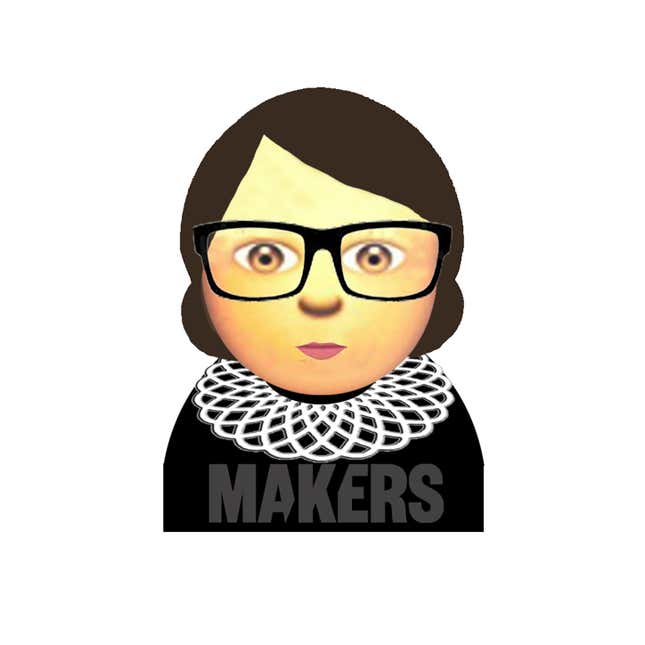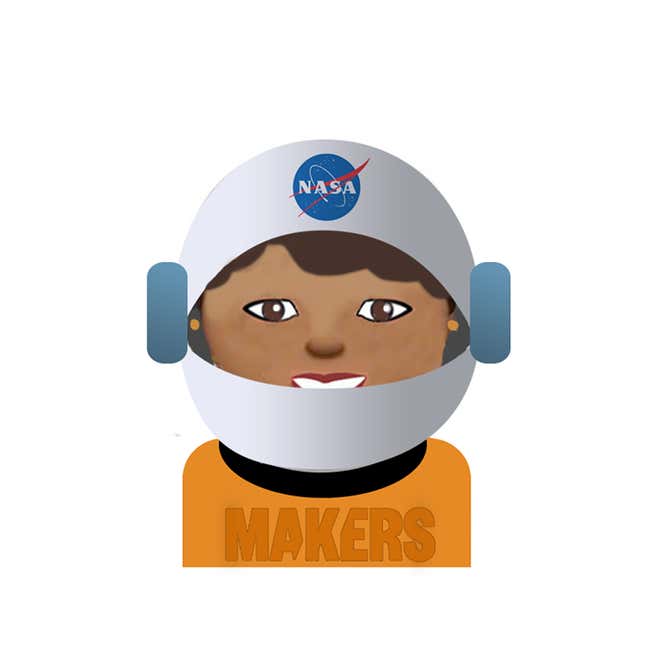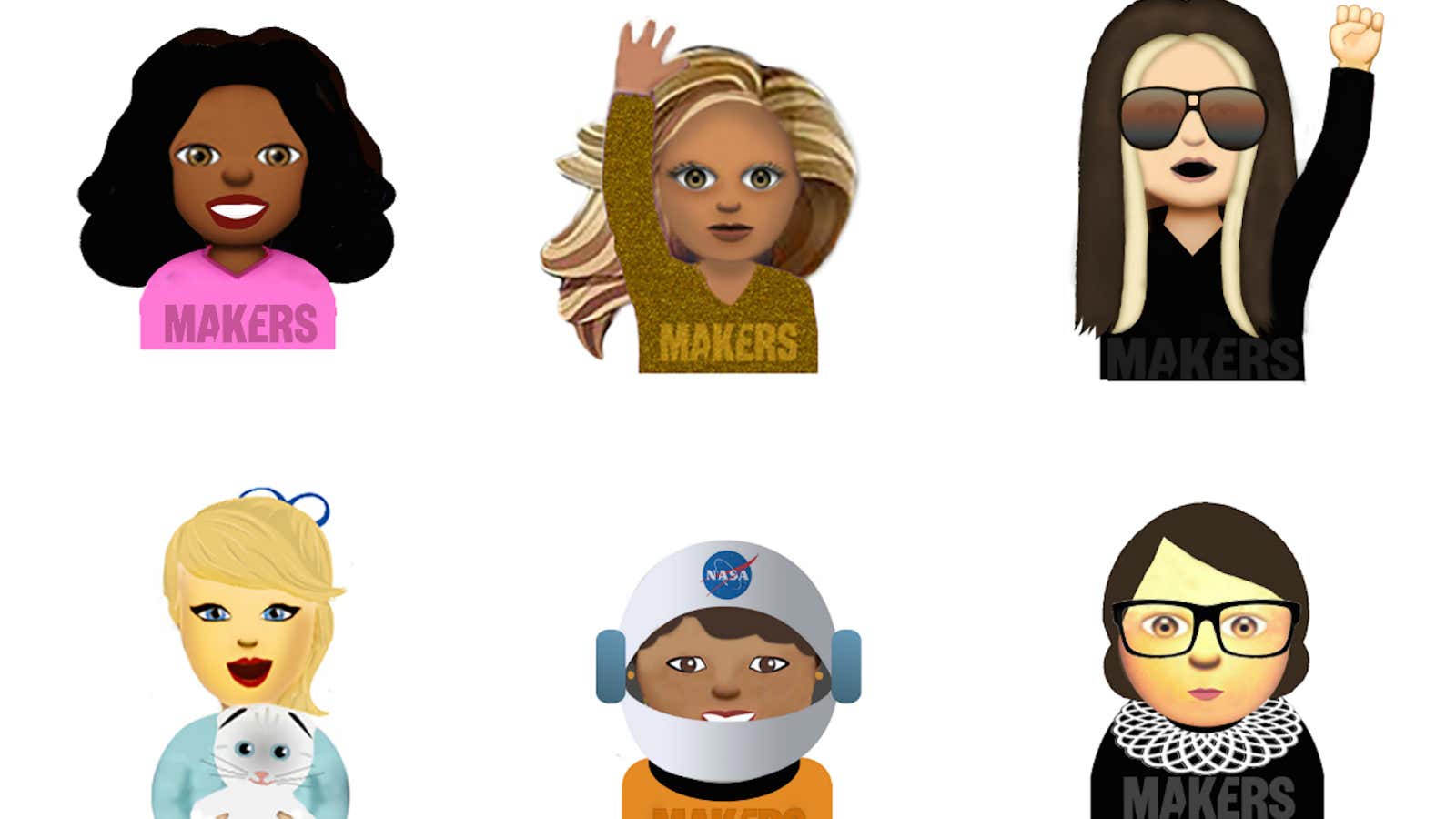A Ruth Bader Ginsburg emoji? We’re tempted to say it was only a matter of time—but in this case, it also was a matter of feminist principle.
The US Supreme Court justice, dubbed the Notorious RBG by adoring, young, feminist fans, is part of a new collection of feminist emojis designed by the digital and video storytellers over at MAKERS, who noticed something odd about the more mainstream efforts to diversify the electronic pictogram universe:
Apple recently updated its iPhone emoji alphabet to include a wider variety of skin tones in an effort to promote diversity. And while this initiative is certainly commendable, their collection of female emojis remains limited to characters like brides and princesses. Activities are limited to sexy salsa dancing, getting haircuts, and wearing bunny costumes.
So the MAKERS folks, who shared the observation above in an article accompanying their rollout of the collection, took action to fix that. They said they were inspired to create their “femojis” so that young women and girls would have more ways to express themselves, with emojis that were more representative of their actual feelings and aspirations.

The designs include emoji paying homage to Girls‘ creator Lena Dunham, professional tennis powerhouses Venus and Serena Williams, pop superstar Taylor Swift (who recently was named one of Forbes’ Most Powerful Women), and Mae Jemison, the first African-American woman to travel into space.
Emojis were originally created for Japanese cell phones, but are now turning up everywhere, from Venmo transactions to Wall Street Journal articles. As their use has spread, there have been efforts (with some arguably dubious results) to bring more diversity to the offering—but mainly that’s been in terms of race and sexual orientation, not gender.
Although feminist emoji may seem relatively insignificant in terms of the broader struggle for gender equality, MAKERS’ Samantha Leibovitz tells Quartz that the pictograms’ popularity, especially among young people, offers an important opportunity.

“We believe girls need to see it in order to be it, and more female emojis can only help further show girls that they can be whatever they want to be,” Leibovitz said. “Emojis are a major communication tool being used today, especially when we look at young girls and what influences them and how they engage with each other on a day to day basis.”
While the emojis are not available on iOS or other mobile platforms yet, Leibovitz said she is hopeful that someday soon they will be. Until then, the MAKERS team plans to continue to expanding the women featured in the series in order to “profile women who lead by example in hopes of inspiring others to ‘dare to lead’ as well.”
